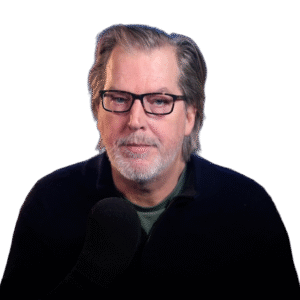
#111 | Frankly
The Three Most Important Words We’re Taught Not to Say
Description
In this week’s Frankly, Nate considers the ways in which our social species overvalues false confidence rather than the more honest and inquisitive response of “I don’t know.” He invites us to consider the science behind this cultural bias towards certainty: from our biological response from the stress of “not knowing” to the reinforcing effects of motivated reasoning that ensnares even the smartest among us (especially the smartest among us).
Overconfidence and the desire for quick answers have been the root cause of many of humanity’s disasters, from the space shuttle Challenger explosion to the Deep Water Horizon oil spill to the subprime housing bubble. And now, the exponential growth and integration of Artificial Intelligence is hyper-fueling this risk, as AI mirrors the human aversion to uncertainty through “hallucinations”. As some AI companies are now considering penalizing over-confident answers in favor of “I don’t know”, perhaps humans could learn to do the same for ourselves.
How often do you say, “I don’t know”? In what ways do we lose opportunities for conversation and exploration by not admitting our own uncertainties? Can listening to our own gut for “truth” and embracing intentional Red Team dissent shift “I don’t know” from weakness to wisdom?
In French, we have a motto that says that a simple drawing is often better than a long explanation. Jean-Marc Jancovici Carbone 4 President
That’s very understandable because with left atmosphere thinking, one of the problems is that you see everything as a series of problems that must have solutions. Iain McGilchrist Neuroscientist and Philosopher
We can’t have hundreds and hundreds of real relationships that are healthy because that requires time and effort and full attention and awareness of being in real relationship and conversation with the other human. Nate Hagens Director of ISEOF
This is the crux of the whole problem. Individual parts of nature are more valuable than the biocomplexity of nature. Thomas Crowther Founder Restor
Show Notes & Links to Learn More
Download transcriptThe TGS team puts together these brief references and show notes for the learning and convenience of our listeners. However, most of the points made in episodes hold more nuance than one link can address, and we encourage you to dig deeper into any of these topics and come to your own informed conclusions.
01:54 – Salomon Brothers
03:48 – The Great Simplification (TGS) Podcast
05:07 – Sympathetic Nervous System
07:54 – Motivated Reasoning
08:09 – Authority Bias
08:33 – Milgram Experiment
08:49 – Nurses Over-Prescribing Study
10:20 – The Superorganism Explained in 7 Minutes
10:44 – Major Projects Which Went Catastrophically Over-Budget
11:59 – Training Large Language Models on What Wins
12:12 – AI Hallucinations
13:02 – OpenAI on AI Hallucinations
13:06 – ChatGPT5
13:29 – Stanford Paper “Moloch’s Bargain”
14:16 – Nuclear Wars Avoided the Past 50 Years
16:20 – YouTube CBS News Story on Challenger Explosion
16:48 – Housing Bubble, Subprime Mortgage Crisis
17:03 – Deep Water Horizon, NYT Article causes of the Deep Water Horizon Explosion
18:12 – Maximum Power Principle
19:46 – TGS Episodes on Dark Triad and Psychopathy, Frankly #108, Reality Roundtable #19
20:18 – OpenAI on How Will Change LLM Training
23:50 – Red Teams
Additional References:
Keren and Teigen, Preference for Definitive Predictions Paper
Anderson & Kilduff, Trait Dominance Paper







